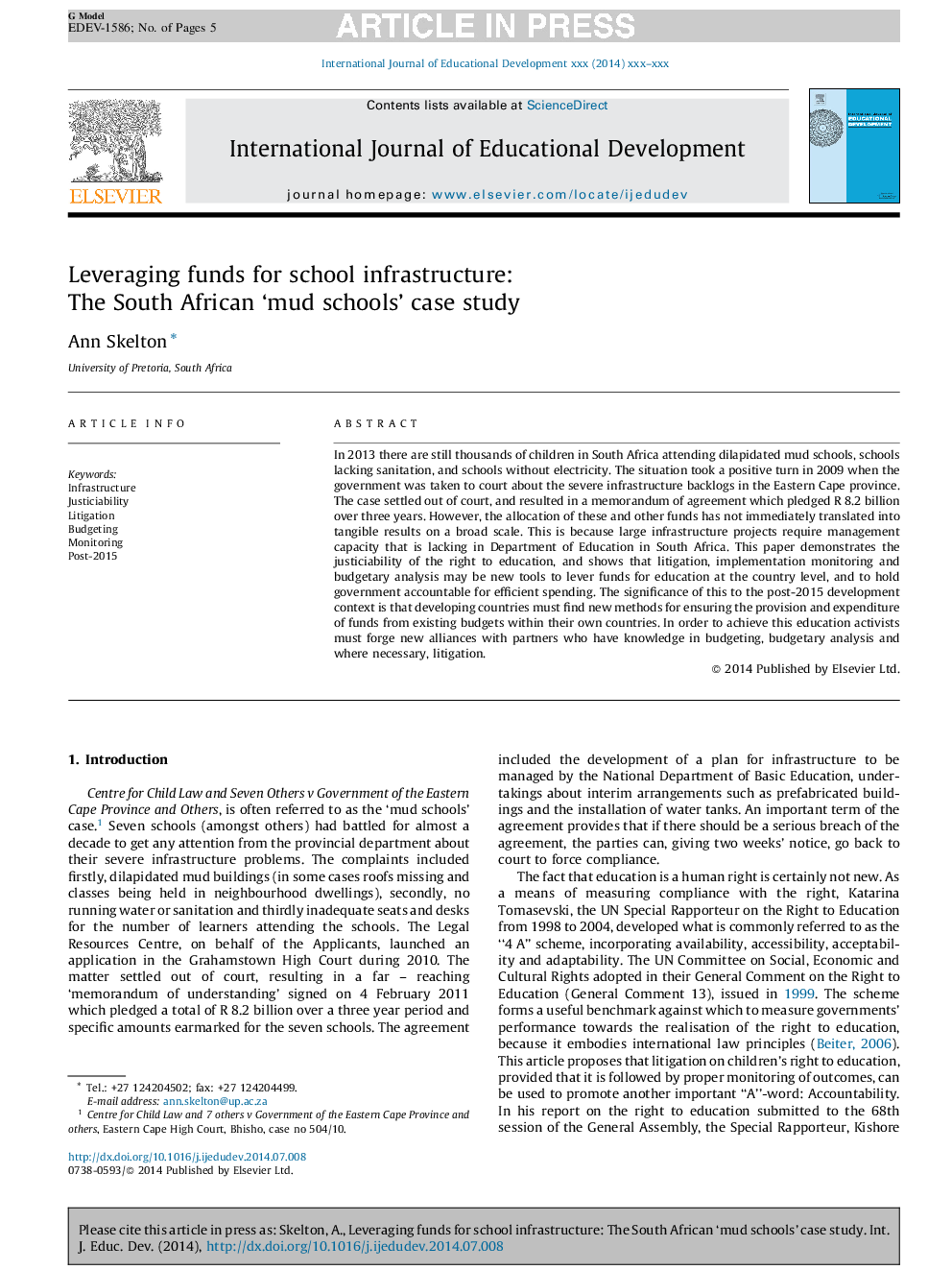| Article ID | Journal | Published Year | Pages | File Type |
|---|---|---|---|---|
| 6841388 | International Journal of Educational Development | 2014 | 5 Pages |
Abstract
In 2013 there are still thousands of children in South Africa attending dilapidated mud schools, schools lacking sanitation, and schools without electricity. The situation took a positive turn in 2009 when the government was taken to court about the severe infrastructure backlogs in the Eastern Cape province. The case settled out of court, and resulted in a memorandum of agreement which pledged R 8.2 billion over three years. However, the allocation of these and other funds has not immediately translated into tangible results on a broad scale. This is because large infrastructure projects require management capacity that is lacking in Department of Education in South Africa. This paper demonstrates the justiciability of the right to education, and shows that litigation, implementation monitoring and budgetary analysis may be new tools to lever funds for education at the country level, and to hold government accountable for efficient spending. The significance of this to the post-2015 development context is that developing countries must find new methods for ensuring the provision and expenditure of funds from existing budgets within their own countries. In order to achieve this education activists must forge new alliances with partners who have knowledge in budgeting, budgetary analysis and where necessary, litigation.
Related Topics
Social Sciences and Humanities
Social Sciences
Development
Authors
Ann Skelton,
